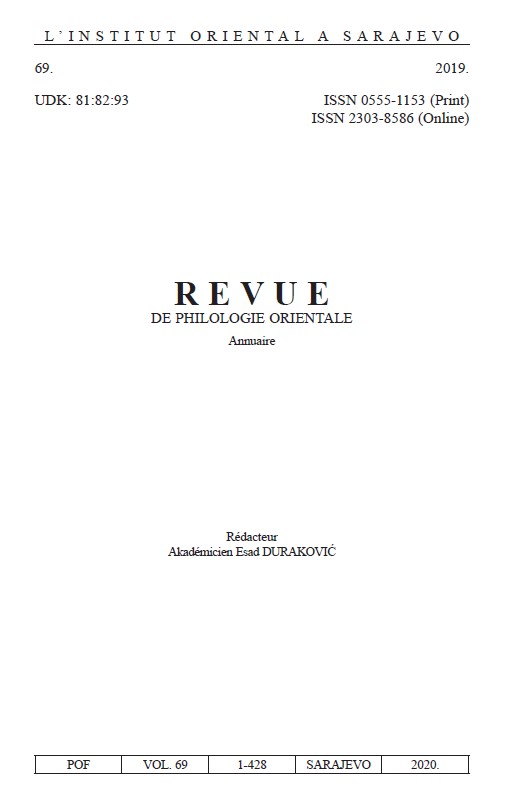MUSLIMANI KAO PORESKI OBVEZNICI U OSMANSKIM DEFTERIMA DŽIZJE: STUDIJA SLUČAJA ZA VILAJET BROD U DRUGOJ POLOVICI 17. STOLJEĆA
MUSLIM JIZYA PAYERS IN THE SEVENTEENTH CENTURY OTTOMAN EMPIRE: A CASE STUDY FOR THE VILAYET OF BROD
Author(s): Fahd KasumovićSubject(s): Christian Theology and Religion, History of Law, Economic history, Islam studies, Economic policy, 17th Century, The Ottoman Empire, Fiscal Politics / Budgeting, Socio-Economic Research, Sharia Law
Published by: Orijentalni Institut u Sarajevu
Keywords: Ottoman Empire; Bosnia; the jizya tax; social and economic history; Early Modern Age; financial policy; Islamization; socio-economic position of Muslims and Christians in the world of Islam;
Summary/Abstract: This paper aims to deconstruct the traditional narratives on the Ottoman financial and political strategies towards non-Muslim and Muslim subjects in the Western Balkans by re-examining the foundation, extent and consequences of the central government’s policy of demanding a payment of jizya tax not only from non-Muslims, as stipulated in the classical Sharia law, but from the Muslim population as well. Although academic community is aware of the existence of Muslim jizya payers in several regions of the Ottoman Empire, this paper argues that historiographic knowledge on the mentioned phenomenon is rather rudimentary as present studies on this topic are based on a very limited data while official financial records that contain information on Muslim jizya payers, such as the jizya registers from the Ottoman Bosnia, have still not been thoroughly analysed. Recognizing the need to include financial records into the account, the main research strategy of this paper was to identify and examine records of jizya payers which contain a significant number of Muslims in a taxpayer role as well as to compare and interpret this data with other financial, administrative and legal texts that could help us gain better insight into the phenomenon of Muslim jizya payers in the Ottoman practice. The main primary source for the analysis provided in this study was a register of jizya payers from the vilayet of Brod, in central parts of the Ottoman Bosnia, from the 1679, which have not been previously used in historiographic studies. On the basis of this financial register, it has been concluded that more that 90% of all jizya payers in the territory covered in the mentioned register were Muslims, which is an important and interesting fact that has still not been recorded in any other part of the Ottoman Empire.
Journal: Prilozi za orijentalnu filologiju
- Issue Year: 2020
- Issue No: 69
- Page Range: 247-286
- Page Count: 40
- Language: Bosnian

